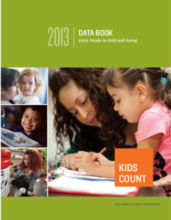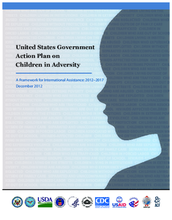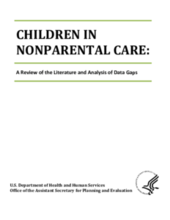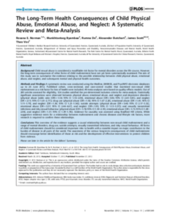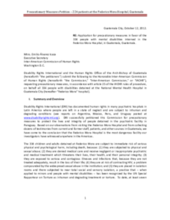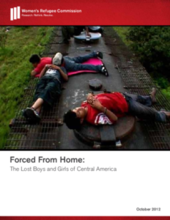This page contains documents and other resources related to children's care in the Americas. Browse resources by region, country, or category.
Displaying 2991 - 3000 of 3191
The 2013 KIDS COUNT Data Book provides a detailed picture of how children are faring in the United States. In addition to ranking states on overall child well-being, the Data Book ranks states in four domains: Economic Well-Being, Education, Health, and Family and Community.
This excellent article explains the process through which indicators of family care for (child) development were drafted and tested in several countries.
The Action Plan on Children in Adversity is the first government wide strategic guidance for U.S. Government international assistance for children. The goal of the Action Plan is to achieve a world in which all children grow up within protective family care and free from deprivation, exploitation, and danger. It has three principal objectives, with Objective 2 specifically focusing on the importance of promoting family care and prevention of family-child separation.
This literature review summarizes the research on children who live apart from their parents and identifies gaps in knowledge regarding this vulnerable population. This literature review was developed as a step toward designing the National Survey of Children in Nonparental Care, a nationally representative telephone survey of adults caring for these children.
Although the relationship between child sexual abuse and mental disorders life has been well established, the health consequences of other forms of child maltreatment, including physical abuse, emotional abuse, and neglect have not been systematically examined. This study summarizes the evidence relating to the possible relationship between child physical abuse, emotional abuse, and neglect, and subsequent mental and physical health outcomes.
This research paper provides a brief overview of the Vietnam Babylift and of a more recent child abduction attempt in Chad. Then, turning to the history of child abduction and adoption history in Latin America, the paper presents the conflicts of El Salvador and Argentina and discusses ‘living disappeared’ children – those who disappear into adoption networks during war. The research explores the post-conflict social realities in both nations. The role of the social worker and specific practices are identified and discussed in context of generalist social work practice.
This paper provides insight into child protection in the context of coordinated action, the architecture of U.S. government assistance, the state of evidence-base, development of appropriate research framework, practice and policy, ethical considerations, and capacity development and knowledge transfer for those advocating for children outside of family care. Recommendations are made to consider how current operational contexts, collaborative relationships and learning-knowledge can be united to focus on the various categories of children outside of family care.
Recognizing the need for evidence to inform policies, strategies, and programs to care for vulnerable children, the U.S. Government convened an Evidence Summit on Protecting Children Outside of Family Care on December 12–13, 2011, in Washington, D.C., USA. This paper summarizes the background and methods for the acquisition and evaluation of the evidence used to achieve the goals of the Summit.
This petition was submitted to the Inter-American Commission of Human Rights (IACHR) by Disability Rights International and the Human Rights Office of the Arch-Bishop of Guatemala requesting precautionary measures, in accordance with article 25 of the IACHR rules of procedure, on behalf 334 children and adults with disabilities detained at the National Mental Health Hospital in Guatemala City (“Federico Mora” hospital). The petition documents the serious risks of physical and psychological harm of those detained at Federico Mora.
This report from the Women’s Refugee Commission describes the recent increase in migration of unaccompanied children from Central America to the United States and provides an overview of the situation of these children, including the factors that motivate their migration - primarily the violence they experience in their home countries.


